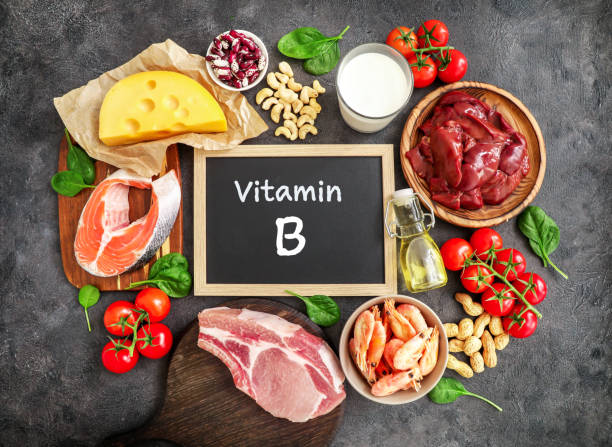Can you take vitamin B with blood pressure medication?
B vitamins and blood pressure medication can actually complement each other. If you're new to blood pressure medications and concerned that they could react negatively with B6 and B12 vitamin supplements, rest easy.
If you're new to blood pressure medications and concerned that they could react negatively with B6 and B12 vitamin supplements, rest easy. You have the green light. In fact, taking certain B vitamins may actually be beneficial for some people with high blood pressure.
Blood Pressure, Stroke and Vitamin B
The exact reasons for this, though, remain unclear. High blood pressure has been associated with high levels of homocysteine, an amino acid, in the bloodstream, which poses a threat to heart health. It turns out that folate, working with vitamins B12 and B6, helps break down homocysteine. A February 2017 study in Molecular Aspects of Medicine found that riboflavin, or B2, plays a part in helping folate clear homocysteine in people with a certain genetic makeup, paving the way for personalized high blood pressure treatment.
There was a more definitive link between folate and stroke prevention, taking folate along with the blood pressure medication enalapril lowered the incidences of stroke more significantly than enalapril alone.
A research analysis published in June 2018 in the Journal of the American College of Cardiology concluded that there was some evidence showing folic acid had a role in fighting cardiovascular disease. It also found that the combination of folic acid, B6 and B12 helped with stroke prevention, according to studies done in countries that, unlike China, did not have populations short on folic acid.
Getting Your Bs
If you haven't been diagnosed with a deficit, try to get these and other nutrients from the source—food. Eating a variety of fruits and vegetables offers health benefits that a supplement pill doesn't contain, but you'll get those benefits when produce is part of your diet.
Vitamin B6
The best vitamin B6 sources are fish, poultry, nuts, legumes, potatoes and bananas, according to the Oregon State Linus Pauling Institute's Micronutrient Information Center . You might need extra B6 if you have a chronic disease associated with inflammation because this could impair your body's ability to process B6.
Vitamin B12
The best vitamin B12 sources are all animal foods—meat, chicken, fish, eggs and dairy. If you're vegan, you can get B12 from fortified foods, but you may also need supplements. Also, the body's ability to process B12 decreases with age. After 60, talk to your doctor about whether you should be tested for a deficiency, the Pauling Institute suggests.
The best folate sources are green leafy vegetables, citrus juices and legumes. Be sure to read labels on fortified cereals because the folate content varies greatly, according to the Linus Pauling Institute.
The best riboflavin sources, the Institute says, are milk, eggs, almonds, spinach and fortified foods.
"If you do take supplements, make sure you aren't getting super doses," Brown warns. This could happen if you take supplements of individual B vitamins plus a multivitamin and maybe even a third pill you don't even realize has B in it.







